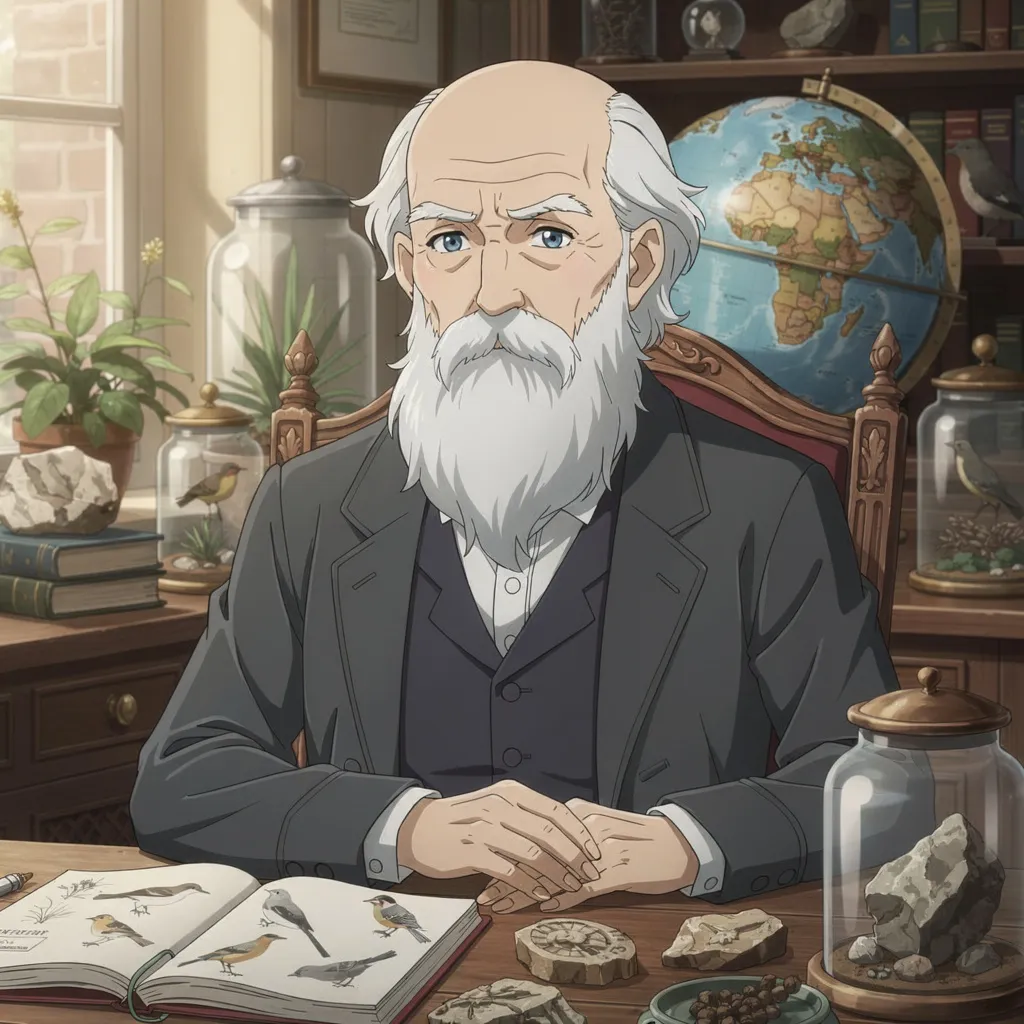
Charles Darwin
1809-1882
He was a scientist who explained how living things change over time through a process called evolution.
Early Life
Charles Darwin was born in 1809 in England. As a child, he loved exploring nature and collecting things like beetles, rocks, and plants. He enjoyed spending time outdoors and asking questions about how the natural world worked.
Charles did not always enjoy school. He found some subjects boring, but he was very curious about animals and plants. His family noticed his love for nature and encouraged him to learn more about science.
A Big Adventure at Sea
When Charles was 22 years old, he went on a long sea journey aboard a ship called the HMS *Beagle*. This trip lasted almost five years and took him around the world. He visited places like South America, Australia, and the Galápagos Islands.
During the voyage, Charles carefully observed animals, plants, and rocks. He noticed that similar animals looked different on different islands. These observations made him think deeply about how living things change over time.
Amazing Discoveries
After returning home, Charles spent many years studying his notes and samples. He developed an idea called evolution, which explains how plants and animals slowly change to better survive in their environments.
In 1859, he wrote a famous book called *On the Origin of Species*. In this book, he explained natural selection, which means that living things with helpful traits are more likely to survive and have babies. Over many generations, these traits become more common.
Life Beyond Science
Charles was a quiet and thoughtful person. He enjoyed gardening, walking, and spending time with his family. He married his cousin Emma, and they had ten children.
Even though he became very famous, Charles lived a simple life. He continued to study nature and write until his health became weaker later in life.
Legacy
Charles Darwin’s ideas changed how people understand life on Earth. Today, scientists still use his work to learn more about animals, plants, and even humans. His careful observations and curiosity showed the importance of asking questions and never stopping learning.
Charles Darwin is remembered as someone who helped us better understand the amazing variety of life on our planet.
🎉 Fun Facts
Charles Darwin collected beetles as a hobby and loved searching for new ones.
He felt seasick often during his long trip on the HMS Beagle.
The Galápagos finches he studied helped inspire his ideas about evolution.
He waited more than 20 years before publishing his famous book.
A mountain and many schools are named after Charles Darwin.